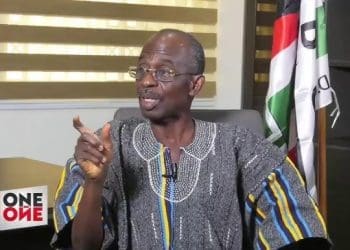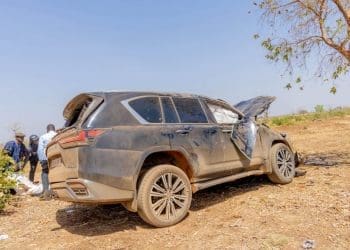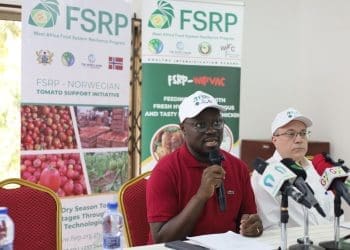The Ghana Coalition Against Galamsey has issued a blistering demand to President John Dramani Mahama, calling on him to provide a clear roadmap with timelines, benchmarks, and decisive actions to halt what it describes as an “ecocidal genocide” against the people of Ghana.
The Coalition insists that the President must immediately define his granular vision of success in the fight against illegal mining and explain the concrete steps being taken to deliver it, including when he will invoke the long-promised state of emergency in mining areas.
In a strongly worded petition, the Coalition declared that the galamsey menace is no longer a distant environmental challenge but a present, nationwide public health and human rights emergency.
The group’s position is bolstered by the recent Mercury and Heavy Metals Impact Assessment conducted by Pure Earth in collaboration with the Environmental Protection Agency (EPA), alongside the testimony of the United Nations Special Rapporteur on Toxic Substances.
Both reports paint a grim picture of Ghana’s mining-affected communities, revealing catastrophic levels of mercury, arsenic, and lead in soil and water across the Ashanti, Eastern, Western, Western North, and Central regions.
Poisoned land, water, and people
The Pure Earth and EPA findings are deeply troubling.
In Konongo Zongo, arsenic levels in soil samples reached an astonishing 10,060 parts per million (ppm), more than 400 times the permissible limit for playgrounds.
Mercury contamination in the same community averaged 56.40 ppm, exceeding global safety thresholds by 560 per cent.
Water sources in Konongo Odumase recorded arsenic levels 330 times higher than Ghana’s national safety standards, underscoring what scientists describe as a direct threat to human survival.
The consequences of these toxic exposures are already visible. The report documents children with mercury pellets lodged in their bodies, a rising incidence of kidney disorders, and research linking hundreds of miscarriages to heavy metal contamination of the placenta.
Health experts warn that mercury exposure poses a dire neurotoxic threat to children’s development.
The devastation is not confined to health. The Peasant Farmers Association of Ghana estimates that over 1.2 million hectares of farmland have been destroyed by illegal mining, displacing more than 500,000 farmers and threatening national food security.
The very staples of Ghanaian households—kontomire, yam, and tubers—are now being grown in contaminated soils, carrying the risk of poisoning entire communities.
Water security has also been severely compromised. Rivers and streams across galamsey zones have become toxic, forcing the shutdown of treatment plants and leaving millions without safe water.
Even where treatment continues, the presence of mercury and other heavy metals has rendered the water unsafe for long-term consumption.
The UN Special Rapporteur on Toxic Substances has already warned that Ghana’s reckless use of mercury in small-scale mining “compromises the rights of present and future generations.”
The Coalition argues that the President cannot continue to delay decisive action in the face of such overwhelming scientific evidence.
Coalition’s demands
Against this background, the Ghana Coalition Against Galamsey has presented a 12-point list of demands to the President, insisting that only bold leadership can prevent the total collapse of Ghana’s ecological and social systems.
Among them:
State of emergency
The Coalition wants the President to clearly outline the benchmarks that would trigger his declaration of a state of emergency in galamsey-affected areas, a measure he has previously described as a “last resort.”
According to the group, this is no longer optional but essential.
Prosecution of kingpins
The Coalition demands urgent updates on the prosecution of politically connected “big men” implicated in illegal mining, including those named in the controversial Frimpong-Boateng report and others referred to EOCO by the Attorney General.
Fast-track courts
It calls for the establishment of fast-track courts to speed up justice delivery in galamsey-related cases, and the setting of key performance indicators for MCEs, DCEs, and police commanders in galamsey-prone districts.
Protection of activists
The Coalition insists that the state must protect vulnerable anti-galamsey activists, many of whom face intimidation, harassment, and spurious prosecutions in towns such as Atronsu and Breman.
Accountability of chiefs
It calls on the state to confiscate all lands being destroyed by galamsey and investigate the complicity of traditional authorities, arguing that illegal mining cannot happen without chiefs’ knowledge or acquiescence.
Foreign miners
The Coalition wants an immediate halt to the inflow of foreign nationals into mining communities, and demands that those arrested for galamsey crimes be prosecuted under Act 995 rather than deported.
Monitoring and transparency
The Coalition is demanding daily publication of turbidity levels at all water treatment facilities, monthly state-of-rivers and state-of-forests reports, and quarterly food safety studies in mining-affected zones.
They also want the Attorney General to issue monthly updates on prosecutions.
Citizen oversight
Finally, the group demands the creation of an impact monitoring committee—with Coalition representation—to oversee these reporting obligations and ensure accountability.
“We either deal with it, or we perish”
In its concluding remarks, the Coalition warned the President that Ghana stands on the brink of ecological collapse.
“We are indeed getting what seems like economic benefits in the short term, but the trade-offs on health, food security, water, and forests are conclusive and cannot be ignored any longer. We either deal with this menace, or we perish,” the petition stated.
The Coalition further cautioned that history would judge not only the President but also the entire political class harshly if decisive action is not taken to end what it described as an “ecocidal genocide of monumental proportion.”
“Your Excellency, our environment, our health, our national security, and our children’s future depend on your bold and decisive leadership,” the group declared. “To fail is to be complicit in this atrocity.”
With mounting scientific evidence and growing public anger, the pressure is now firmly on the President to act.
The question many Ghanaians are asking is whether this moment will finally mark a turning point in the nation’s decades-long struggle against galamsey, or whether leadership paralysis will allow the crisis to spiral into irreversible national disaster.












